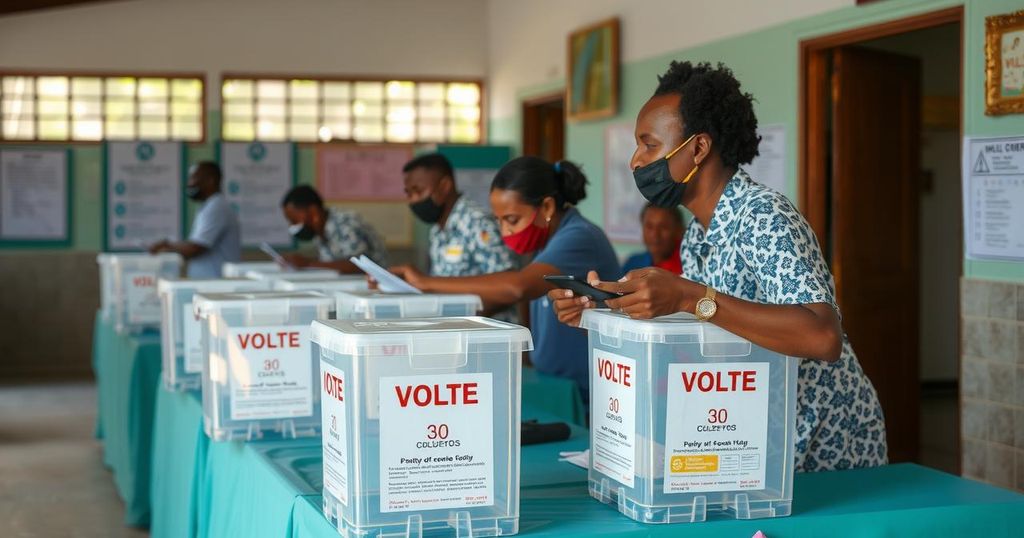World news
ABDALLAH SAMBI, AFRICA, AUSTRALIAN ASSOCIATED PRESS, AZALI ASSOUMANI, COMOROS, ELECTION FRAUD, GOVERNANCE, GOVERNMENT, HAMIDOU KARIHILA, HOPE OF THE COMOROS, INDIAN OCEAN, INDIAN OCEAN ARCHIPELAGO, JUWA, NO, NOUR EL - FATH, OPPOSITION, POLITICS, PRESIDENTIAL ELECTION, REUTERS, SUPREME COURT
Fatima Khan
0 Comments
Comoros Voters Set to Elect Parliament Amid Political Tensions
Comoros voters are electing a 33-seat parliament amid allegations of irregularities surrounding President Azali Assoumani’s re-election last year. Approximately 338,000 voters are registered, with nearly 100 candidates contesting. The opposition is divided, with some advocating a boycott while others seek to expose the regime’s flaws. Results are expected by Friday.
Voters in Comoros commenced polling on Sunday to elect members of the country’s 33-seat parliament, amidst a politically charged atmosphere following the controversial re-election of President Azali Assoumani last year. The opposition has raised serious allegations of electoral irregularities during that election; however, these claims have been firmly denied by representatives of the ruling party. Approximately 338,000 individuals are registered to vote in this round of parliamentary elections, the first since January 2020, with nearly 100 candidates approved by the Supreme Court to compete for parliamentary seats.
President Assoumani, who has been at the helm of Comoros since a coup in 1999 and has since secured three electoral victories, is accused by opposition figures of authoritarian tendencies. They also express concern regarding his apparent efforts to position his son, Nour El-Fath, as a potential successor by granting him significant governmental authority in 2024. Dissenting voices, particularly from the Juwa party led by former President Ahmed Abdallah Sambi, who is currently serving a life sentence, have called for a boycott of the elections, though several other opposition groups disagree.
Hamidou Karihila, an opposition candidate from the Hope of the Comoros party, highlighted the importance of participating in the election to expose and challenge the existing regime by stating, “The Azali regime is weakened … by participating in these elections we are contributing to further exposing the flaws in its system and accelerating its inevitable fall.” Results from the election are anticipated by Friday.
The archipelago of Comoros, situated in the Indian Ocean, has a complex political landscape shaped by years of instability and frequent changes in leadership. President Azali Assoumani, who has been in power in various capacities since 1999, is a polarizing figure associated with accusations of authoritarian governance. His presidency has been marked by allegations of electoral malpractice and controversial political maneuvers, particularly concerning his family’s role in the politics of Comoros, which raises questions about political succession and governance legitimacy. The upcoming parliamentary elections are crucial as they could signify either a consolidation or a shift in power dynamics, particularly with a notable segment of the opposition advocating for a boycott.
In summary, the parliamentary elections in Comoros are taking place against a backdrop of previous electoral disputes and ongoing tensions related to governance under President Assoumani. With accusations of authoritarian practices and calls for electoral boycotts from certain opposition parties, the results of this election could have significant implications for the political future of the archipelago. The participation of various opposition elements indicates a desire to contest the ruling party’s authority and could lead to heightened scrutiny of the electoral process and the current regime’s legitimacy.
Original Source: www.areanews.com.au




Post Comment